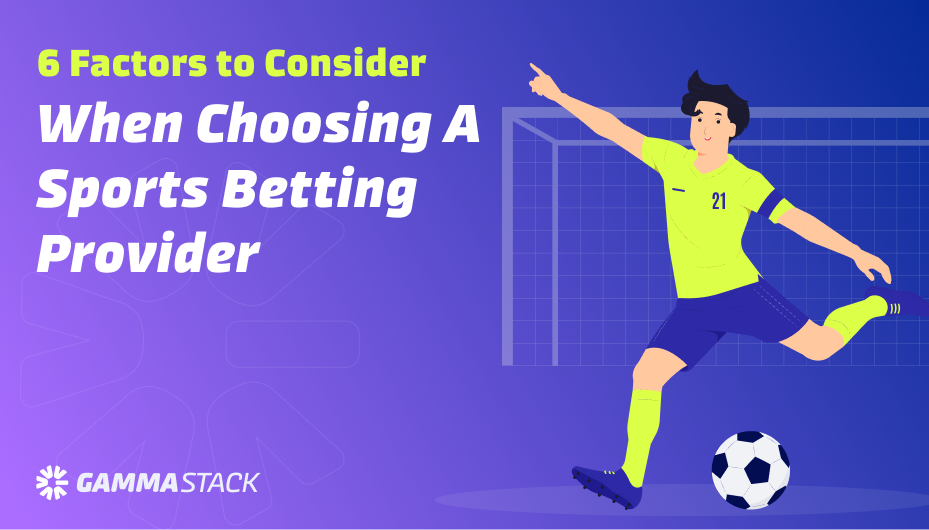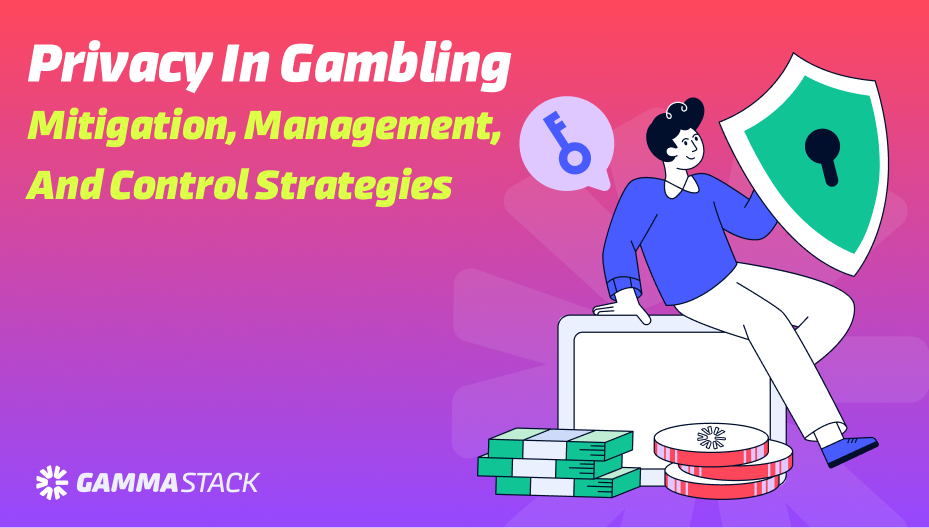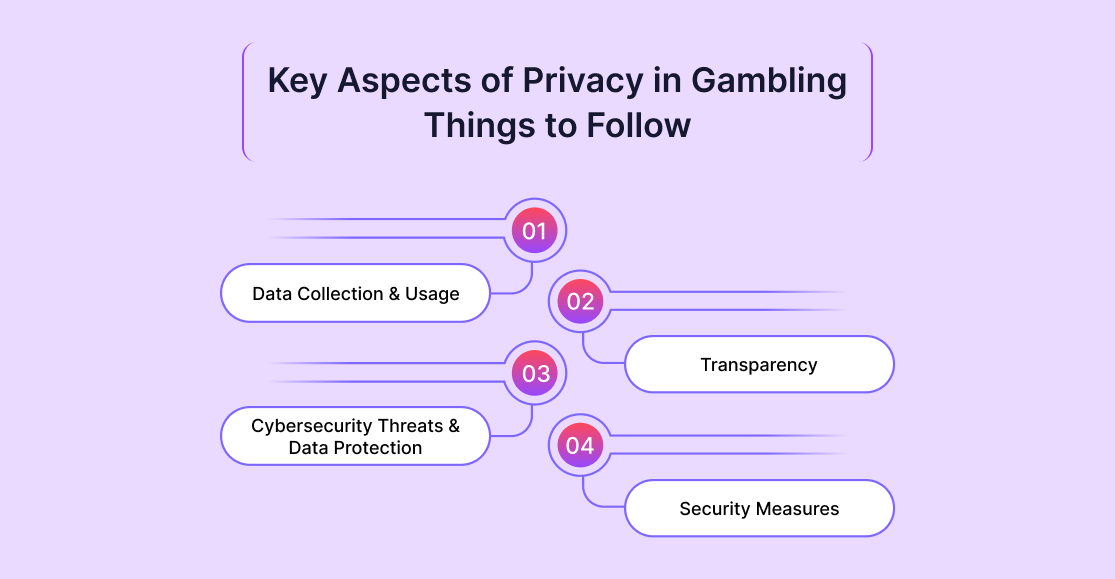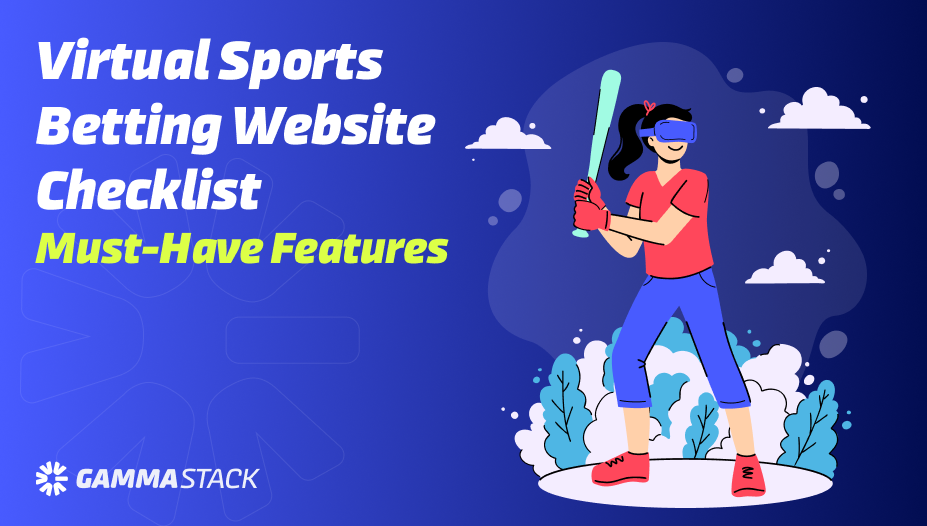
Share it
TABLE OF CONTENTS
- Understanding the Landscape: Why Privacy Matters in Modern Gambling
- Identifying Key Privacy Risks and Cyber Threats in Online Gambling
- Best Practices for Implementing Robust Data Protection
- Navigating Global Gambling Privacy Laws & Regulations
- Strategic Benefits: Building Brand Loyalty through Secure Platforms
- Conclusion: Future-Proofing Your iGaming Business with Advanced Privacy Controls
- GammaStack Offers Secure Gambling Platforms for All Operators
- Frequently Asked Questions (FAQs) on Privacy in Gambling

Privacy in Gambling: Mitigation, Management, and Control Strategies
Online gambling is booming, but we need to watch out for the risks that come with it. Operators collect player data every day. This includes names, payments, and identity details. The problem is simple. When data is not protected, trust breaks. Players leave. Regulators step in. Fines follow.
The solution starts with privacy in gambling. Strong privacy controls reduce risk, protect users, and keep businesses safe. This guide explains real threats, smart controls, and clear strategies to manage privacy with confidence.
Understanding the Landscape: Why Privacy Matters in Modern Gambling
Gambling platforms depend on data to operate. Player accounts, wallets, betting history, and verification records are all sensitive. If this data gets out, the damage will spread super fast.
You can’t skip out on privacy anymore. Players expect safety by default. Regulators demand it. Partners look for secure operations. Privacy in gambling protects more than data. It protects reputation and long-term growth.
Modern platforms operate across borders. This adds more responsibility. Each market has its own rules. A single weak link can impact the entire business. Strong privacy management helps operators stay competitive and compliant.
Identifying Key Privacy Risks and Cyber Threats in Online Gambling
Every online gambling platform faces threats. Knowing them early helps reduce losses. Let’s look at the most common risks tied to Online Gambling Data Protection.
Identity Theft and Data Breaches
Identity theft is a big deal in the gambling world. Hackers are always trying to steal personal info like IDs, home addresses, and payment stuff. Just one security mishap can leave thousands of users exposed.
Hackers steal information when companies use easy passwords or old systems. This stolen data causes big problems like cheating, lawsuits, and players no longer trusting the company.
Phishing and Social Engineering Scams
Phishing attacks trick users into sharing login details. Fake emails and messages look real. Players click links. Accounts get compromised.
Social engineering also targets staff. One wrong click can open access to internal systems. It’s really important to train people and make them aware so we can stop these attacks quickly.
DDoS Attacks and Server Vulnerabilities
DDoS attacks basically overwhelm servers with a ton of traffic. Platforms go offline. Bets fail. Payments stop.
Server weaknesses make things worse. If computer systems aren’t updated and websites aren’t hosted well, hackers can attack. Good computer setups and checking on them keep your data safe and running smoothly.
Best Practices for Implementing Robust Data Protection
Strong privacy starts with smart systems. These practices are key to creating secure gambling platforms that players and regulators can really trust.

SSL/TLS Encryption and Secure Data Transmission
Encryption is like a secret code for your online information. SSL/TLS makes sure that when you send data to a website, it stays completely private and secure from prying eyes. This keeps your info safe when you log in, pay, or update your account. Encryption should be active across the entire platform. Not just during checkout.

Multi-Factor Authentication (MFA) and Access Control
Adding Multi-Factor Authentication (MFA) is a good way to give your security an extra boost. Even if passwords leak, access stays blocked. Access control limits who can view sensitive data. Staff should only access what they need. This reduces internal risks and supports online gambling data protection.

Secure Payment Gateway Integration
Payments are prime targets for attacks. Secure gateways reduce this risk. Gambling companies keep your money safe by using special codes (tokenization) and checking for fraud. Your transactions are like secret messages, which also helps with tracking the money. A trusted payment system strengthens platform credibility.
Navigating Global Gambling Privacy Laws & Regulations
Gambling websites must follow privacy rules. If they don’t, they can get big fines or be shut down. Knowing these privacy rules is very important for the gambling industry.

Compliance with GDPR, CCPA, and International Standards
The General Data Protection Regulation (GDPR) is there to make sure user data stays safe in Europe. CCPA does the same in California. Other regions follow similar rules. These laws focus on consent, data access, and user rights. Platforms must store data safely and explain how it is used. Privacy in Gambling depends on clear policies and strong controls.

The Role of KYC and Age Verification in Regulatory Success
KYC verifies player identity. Age checks prevent underage gambling. These steps reduce fraud and support iGaming compliance. Good KYC makes the platform safer and more secure. Special tools check your identity quickly without being annoying. It's a win-win for everyone!
EXPLORE MORE BLOGS FROM VARIOUS CATEGORIES
Strategic Benefits: Building Brand Loyalty through Secure Platforms


Trust Becomes a Brand Asset
Secure platforms protect player data at every stage. This builds confidence from the first signup. When users feel safe, they stick around longer. That trust means they keep coming back, which is great for steady revenue.

Lower Churn and Higher Retention
Players avoid platforms with security issues. Strong protection reduces account misuse and fraud. Fewer problems mean fewer complaints. This keeps users active and loyal over time.

Positive Word-of-Mouth Growth
Safe experiences encourage players to share feedback. Reviews improve naturally. A secure reputation attracts new users without heavy marketing spend.

Stronger Regulator And Partner Confidence
Secure systems show operational maturity. Regulators view compliant platforms as low risk. Payment providers and partners prefer working with reliable operators.

Faster Market Expansion
Built-in security supports quick entry into new regions. Compliance gaps are easier to close. Growth plans move faster with fewer roadblocks.

Long-Term Brand Value
Security investments protect more than data. They protect brand image. A strong, safe platform builds loyalty that competitors struggle to break.
Conclusion: Future-Proofing Your iGaming Business with Advanced Privacy Controls
Privacy threats will keep evolving. So must gambling platforms. Keeping things in check with solid controls, straightforward policies, and regular audits means businesses are always ready.
Keeping gambling private isn’t just to avoid trouble. It helps build trust, keeps players safe, and lets the business grow in a good way.
Gambling sites that seriously protect your private information and follow the rules will be the most successful. The best platforms are the ones that make privacy their top priority.
Want to Include Privacy Best Practices in Your Platform?
GammaStack Offers Secure Gambling Platforms for All Operators
GammaStack has delivered secure gambling platforms built for operators of all sizes for the past 14+ years. Our system protects player data at every stage. Strong encryption, access controls, and risk tools work together to reduce threats. Compliance-ready features support smooth operations across markets. This approach helps operators run safer platforms while building long-term trust and business stability.
Frequently Asked Questions (FAQs) on Privacy in Gambling
Most operators ask how to keep user info safe from hacks and leaks. Best practice is strong encryption (like SSL/TLS), two-factor authentication, regular security audits, minimal data collection, and clear privacy policies. These steps build trust and cut the risk of breaches.
Operators ask this because regulations legally protect player data and set rules for consent, storage, sharing, and breach response. Complying avoids heavy fines, builds customer confidence, and ensures ethical handling of personal information across regions.
Running gambling services means handling lots of data, but unauthorized tracking or sharing (like with 3rd party ads) can breach privacy rules. Operators should only use data with clear consent, keep tracking transparent, and show users how their info is used.

